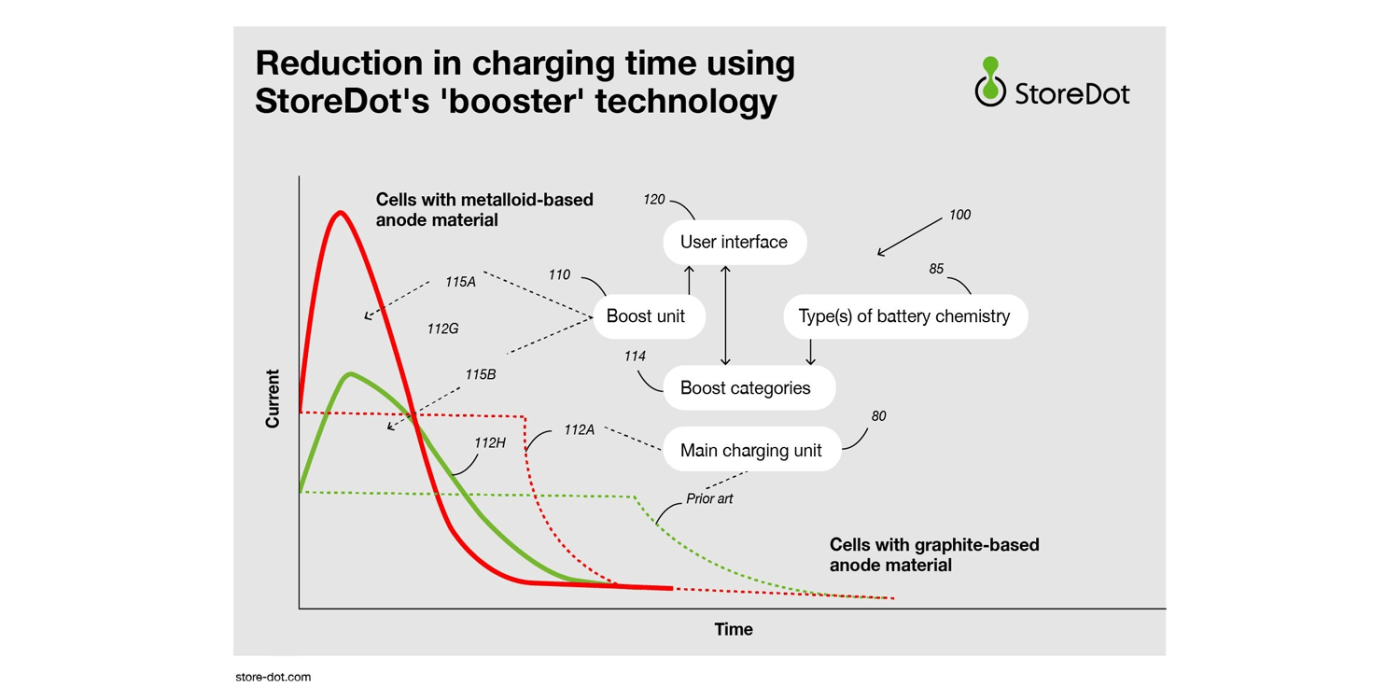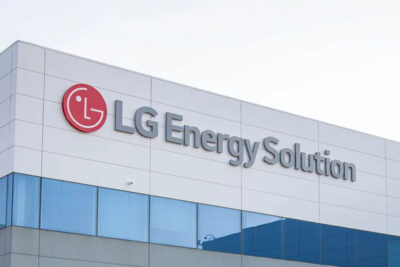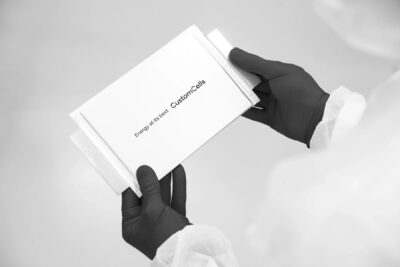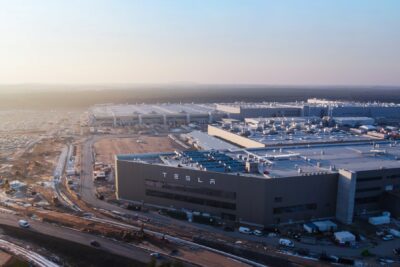StoreDot files patent for fast charging ‘booster’ function
Israeli battery developer StoreDot announces it has filed a patent for technology to help electric cars charge faster. The solution, which the company says it will make available as an open-source license, includes hardware and software enhancements that create a “booster” function.
StoreDot claims this will allow the battery to analyze charging station performance in real-time and adjust the battery to accommodate higher currents if so provided by the charge column. This, of course, requires communication between a vehicle’s battery and charging system, thus making the open-source license a must for the start-up.
Dr Doron Myersdorf, the StoreDot CEO, explained that the technology would allow “all of us to charge faster with very minimal changes to the current infrastructure and future deployment process. That is why we believe it’s critical to offer this world-leading innovation to other organizations on an open-source basis.”
The technology, says the developer, also has the ability to “immediately boost existing infrastructure systems,” only the how so remains unclear.
StoreDot has been seen working on what it calls extra fast charging cells or XFC for over three years. In 2019, the company published a video showing a scooter utilising said cells charged within five minutes. StoreDot considers what it calls the “miles-per-minute” ratio crucial for EV adoption.
Today’s announcement does not provide details on battery chemistry. StoreDot, which received a 20-million dollar investment through BP ventures in 2018, has done away with graphite in earlier developments. Instead, the company says it uses materials such as tin, germanium, and silicon with organic compounds.
StoreDot announced it launched engineering samples of its first-gen batteries designed to be manufactured at scale on traditional Li-ion production lines in its latest communications. Here, so StoreDot, it was in “advanced talks with many global carmakers and remained firmly on track to deliver mass-produced XFC batteries,” claimed to deliver a 50% reduction in charging time at the same cost by 2024. Furthermore, by 2028, StoreDot hopes to launch XED, extreme energy density solid-state technologies to enter mass production.
Apart from BP, Daimler, Samsung Ventures, and TDK also have a stake in StoreDot.





0 Comments